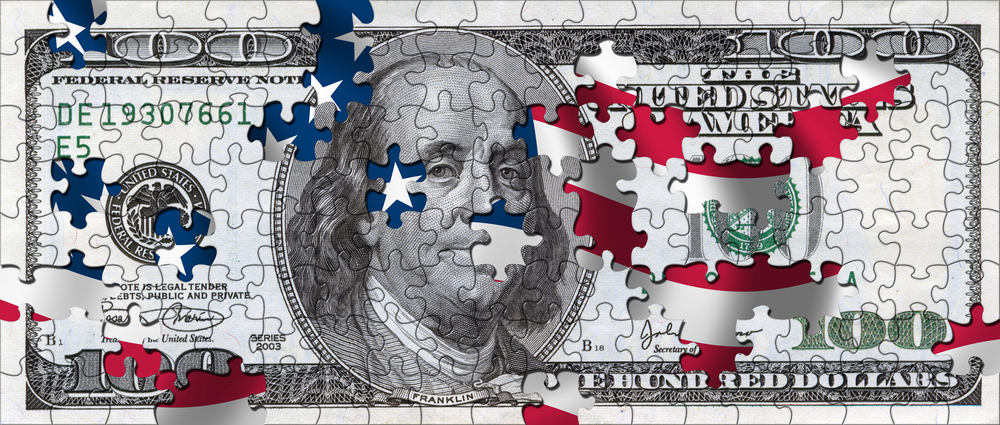The Dow rose again. Gold rose, too. Dow investors are betting on clear skies and smooth sailing. Gold investors are betting on icebergs.
Who’s right?
We don’t know. Perhaps both are betting on rate cuts. Like a gust of wind, more fake money, lent at fake rates, may push them both along…in the short run.
In the long run, our money is on the icebergs.
Economic amnesia
Economies are living things…Civilisation, too…They breathe in and out. They learn from their mistakes and go forward. And then, they forget…and sink.
Yesterday’s Wall Street Journal explains the latest amnesia:
‘How Washington Learned to Love Debt and Deficits
‘Political support for taming federal debt has melted away, and the US is testing just how much it can borrow.
‘Moody’s projects that within a decade, interest payments will consume over 20% of federal revenue, well above most other developed nations and exceeding US levels in the 1980s and 1990s when debt worries consumed Wall Street and Washington.’
The WSJ turned to an old-timer, former Senator Alan Simpson, born in 1931, now retired in the mountains of Wyoming, to help remember:
‘If you spend more than you earn, you lose your butt.’
Losing your butt can take time. And as we pointed out previously, it happens slowly at first…so slowly that few people even notice.
Not worth a continental
And it begins with politics. Ultimately, the feds control the money we use. And over a long, painful history, they learned — and we all learned — that no human being can be trusted to create fake money at will.
Counterfeiting is a federal crime.
John Law was the world’s first modern central banker to make counterfeiting a matter of public policy. His fake money system collapsed in 1720.
The South Sea Bubble in England, too, was essentially a scheme to finance the government with fake money; it blew up in the same year. Later, French assignats — another form of fake money based on land confiscated from the church — caused inflation of 3,500% in 1795.
These…and many other 18th-century paper money disasters…persuaded governments to rely on metal for their money.
Americans had the experience of fake money fresh in their minds when they wrote the Constitution, for example. The ‘continental’ dollar was issued in 1775. By 1781, it was worthless. ‘Not worth a continental,’ was a famous expression.
So, the Constitution made it clear: states (which issued money at the time) were prohibited from making ‘anything but gold and silver coin a tender in payment of debts.’
[openx slug=inpost]
Prosperous and peaceful
In Europe, too, all major governments turned to gold-backed currencies. This real money is part of the reason the 19th century was so prosperous…and relatively peaceful.
There was no systematic price inflation, neither on Wall Street nor on Main Street. And with no easy access to counterfeit money, governments could not undertake wars, wasteful adventures, and boondoggles.
But the gold standard got gassed in World War I. All the combatants — save the USA — were so eager to keep the war going that they turned to fake money to pay for it.
Later, gold-backed money was revived…and lingered on in bad health until 1968.
Then, the US declared that henceforth, it didn’t need no stinkin’ gold for its domestic finances. The gold standard was finally laid to rest in 1971, when the Nixon administration removed it from its global commitments and buried it.
But that didn’t mean that people had completely lost their senses. Members of Congress continued to rant and rave about overspending and debt…and generally, made an effort to balance the federal budget — though rarely did they succeed.
And then, the old fiscal conservatives disappeared completely.
Deficits don’t matter
The Democrats were early adopters of the ‘deficits don’t matter’ flapdoodle. Once in power, Republicans found it useful, too.
And now, according to your editor, and The Wall Street Journal, nobody in power worries too much about balanced budgets, deficits, debt, or fake money.
In the latest monthly accounts, for example, we find that in May, the feds spent nearly $2 for every $1 they raised in taxes, bringing the deficit for the last 12 months closer to $1 trillion.
How long that can continue before Senator Simpson is proven right is anybody’s guess. But our guess is it won’t last forever.
Regards,
Bill Bonner
